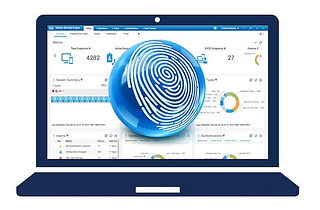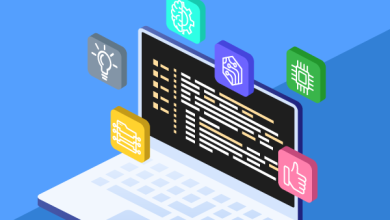Making Informed Business Decisions with Business Intelligence Software

In today’s competitive business landscape, the ability to make informed decisions based on data is crucial. This is where business intelligence software comes into play. Business intelligence software is a powerful tool that helps businesses collect, process, and analyze data to make informed decisions. In this blog post, we will discuss what business intelligence software is and how it can help businesses make more informed data-driven decisions.
What is Business Intelligence (BI) Software?
Business intelligence (BI) software is a type of software that helps businesses collect, process, and analyze data to make informed decisions. It enables businesses to collect data from a variety of sources and turn it into actionable insights that can inform decision-making.
Types of BI Software
There are several types of business intelligence software available, including:
- Reporting And Analysis Tools – These tools allow businesses to create reports and analyze data to gain insights into their operations.
- Data Visualization Tools – Businesses can use these tools to transform data into visual representations such as charts, graphs, and dashboards, simplifying the interpretation and communication of insights.
- Dashboards – Dashboards provide a real-time view of key performance indicators (KPIs) and other important metrics, allowing businesses to quickly identify trends and make data-driven decisions.
Key Features of BI Software
The key features of business intelligence software include:
- Data Integration – Business intelligence software integrates data from multiple sources, such as databases, spreadsheets, and other software systems.
- Data Analysis – Using advanced algorithms and statistical models, business intelligence software examines data to detect patterns, trends, and other valuable insights.
- Data Visualization – This software provides visualizations of data in the form of charts, graphs, and dashboards, making it easier to understand and communicate insights.
- Reporting – With this tool, businesses can generate reports that offer insights into their operations.
How Business Intelligence Software Helps Businesses Make More Informed Data-Driven Decisions
Improved Data Analysis and Visualization
Business intelligence software provides businesses with the tools they need to collect, process, and analyze data. It enables businesses to gain insights into their operations and make informed decisions based on data. Business intelligence software also provides visualizations of data in the form of charts, graphs, and dashboards, making it easier to understand and communicate insights.
Real-time Reporting and Dashboards
Through real-time reporting and dashboards, business intelligence software furnishes businesses with up-to-the-minute views of key performance indicators (KPIs) and other critical metrics. This rapid access enables businesses to rapidly detect trends and make informed decisions based on data.
Enhanced Collaboration and Communication
BI tools enable businesses to collaborate and communicate more effectively. It provides a centralized platform for data collection, analysis, and reporting, making it easier for teams to work together and share insights.
Increased Efficiency and Productivity
By automating data-related tasks such as data collection, analysis, and reporting, business intelligence software empowers businesses to enhance efficiency and save time, allowing them to concentrate on other crucial tasks.
Better Predictive Analytics
With business intelligence software, businesses can leverage predictive analytics to identify trends and make informed decisions. This capability empowers businesses to anticipate future trends and take preemptive measures to gain a competitive edge.
Key Benefits of Business Intelligence (BI) Software for Businesses
Improved Decision-Making
Business intelligence software provides the tools they need to collect, process, and analyze data. It enables businesses to gain insights into their operations and make informed decisions based on data.
Increased Revenue and ROI
This empowers businesses to detect opportunities for revenue growth and cost savings. Through the optimization of operations and the identification of new revenue streams, businesses can enhance their revenue and ROI.
Competitive Advantage
Providing insights into operations and recognizing opportunities for growth allows businesses to outpace competitors. By relying on data-driven decision-making, businesses can maintain a lead in industry trends and anticipate future market fluctuations.
Better Customer Understanding
Understanding customer behavior is key to building a successful business, and business intelligence software can facilitate this understanding. Monitoring customer behavior across multiple channels enables businesses to gather valuable insights into customer preferences, needs, and pain points. This knowledge can be leveraged to create targeted marketing campaigns that resonate with specific customer segments, leading to increased engagement, loyalty, and revenue.
Cost Savings
BI software enables them to identify opportunities for cost savings. By optimizing operations and identifying areas where costs can be reduced, businesses can save money and increase profitability.
How to Choose the Right Business Intelligence (BI) Software for Your Business
Identify Your Needs
The first step in choosing the right business intelligence software for your business is to identify your needs. This includes understanding your business goals, the data you need to track, and the insights you need to gain from that data.
Consider Your Data Sources
It’s important to consider the data sources you will be using. This includes everything from databases to spreadsheets and other software systems. By understanding your data sources, you can choose a business intelligence platform that is designed to work with those sources.
Evaluate Ease of Use and Integration
The usability of the business intelligence software is another important factor to consider. Look for a tool that is easy to use and can be integrated with your existing software systems. This will make it easier to collect and analyze data, as well as share insights with stakeholders.
Check for Customization Options
Every business has unique needs when it comes to business intelligence. Look for a business intelligence platform that offers customization options, such as the ability to create custom reports or dashboards. This will allow you to tailor the tool to your specific needs.
Look for Ongoing Support and Training
Finally, consider the ongoing support and training offered by the business intelligence software provider. Look for a provider that offers comprehensive support and training to help you get the most out of the tool and address any issues that may arise.
Business intelligence software is an indispensable tool for businesses seeking to collect, process, and analyze data to support better decision-making. By selecting the most suitable business intelligence platform for your enterprise, you can obtain valuable insights that inform decision-making and maximize ROI.
When evaluating business intelligence products, it’s vital to consider your business requirements, data sources, budget, and continuous support and training. With the appropriate business intelligence software installed, your business can attain great














